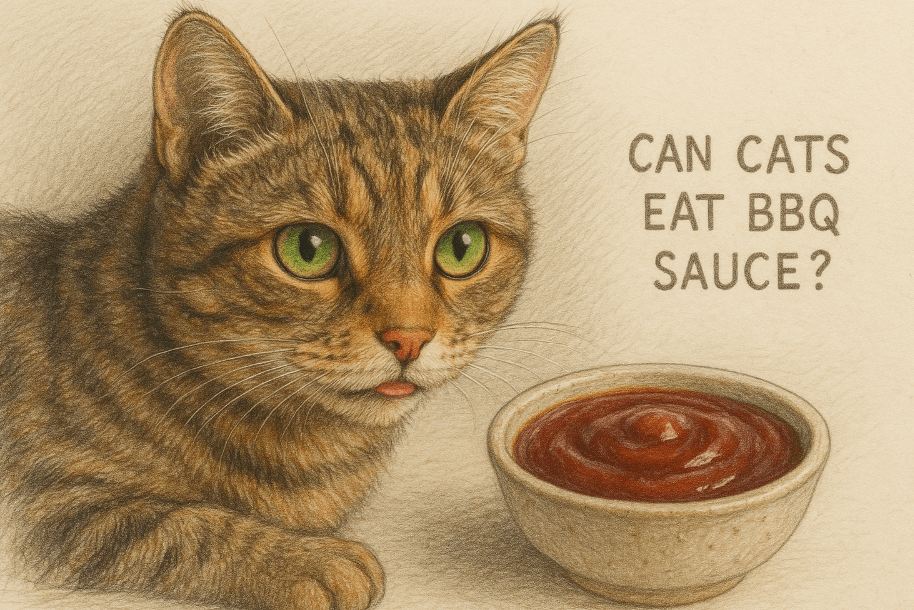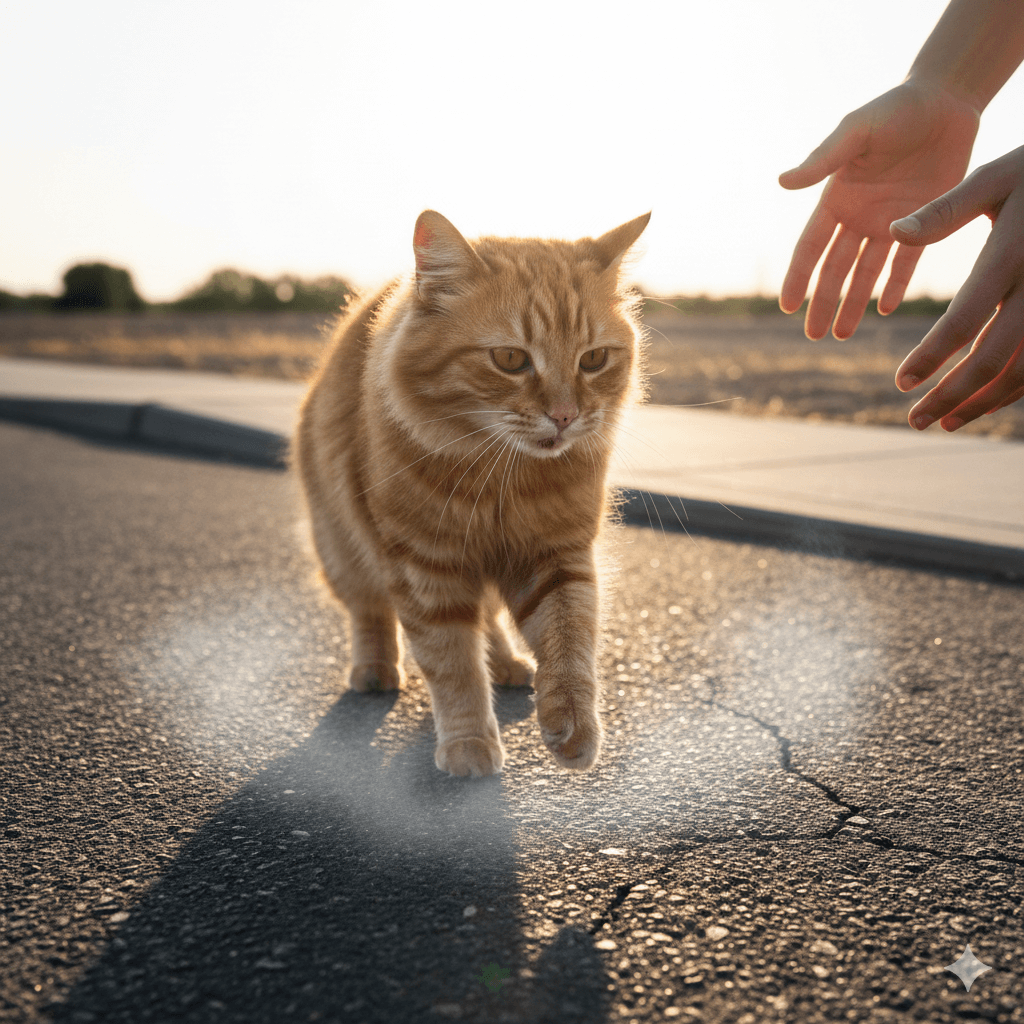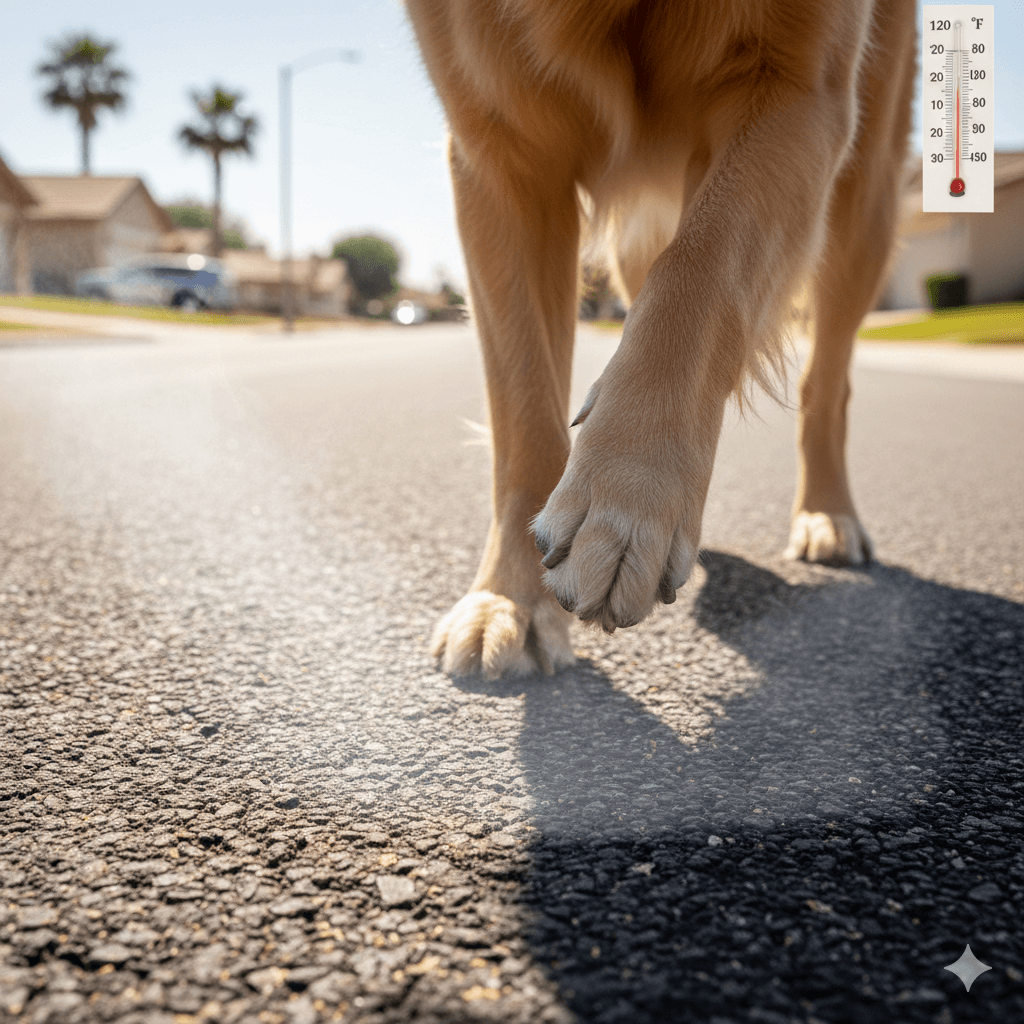Can Cats Eat BBQ Sauce?
Barbecue sauce is a staple at summer cookouts and family gatherings, adding flavor to grilled meats and vegetables. But what happens if your curious feline friend sneaks a lick of that saucy goodness? While cats are naturally drawn to investigate human food, not everything we eat is safe for them. BBQ sauce, in particular, contains ingredients that can be harmful to cats if consumed in large quantities or frequently. In this blog post, we’ll explore whether cats can eat BBQ sauce, the potential risks involved, and safer alternatives to satisfy their curiosity. Understanding these details will help you keep your furry companion healthy and happy while enjoying mealtime together.
Potential Risks of Feeding BBQ Sauce to Cats
While a tiny taste of BBQ sauce might not immediately harm your cat, certain ingredients commonly found in barbecue sauces pose significant health risks. Here’s what you need to know before sharing this condiment with your pet.
High Sugar Content:
Many BBQ sauces contain excessive amounts of sugar, which can lead to obesity, diabetes, and dental issues in cats over time.Onions and Garlic:
These common BBQ sauce ingredients are toxic to cats, potentially causing anemia and digestive problems.Spices and Seasonings:
Spicy or heavily seasoned sauces can upset your cat’s stomach and irritate their digestive tract.Artificial Additives:
Preservatives, colorings, and artificial flavors may not sit well with your cat’s sensitive system.Salt Overload:
High sodium levels in BBQ sauce can lead to dehydration, kidney issues, or even salt poisoning in severe cases.
These risks highlight why it’s best to avoid feeding BBQ sauce to your cat altogether and instead opt for safer treats.
Signs Your Cat May Have Eaten BBQ Sauce
If your cat accidentally consumes BBQ sauce, they may exhibit symptoms indicating discomfort or illness. Recognizing these signs early allows you to act quickly and prevent further complications.
Vomiting or Diarrhea:
Gastrointestinal upset is one of the most common reactions to ingesting unsafe foods like BBQ sauce.Excessive Drooling:
Cats may drool excessively if they find the sauce unpalatable or if it irritates their mouth or throat.Lethargy or Weakness:
Toxic ingredients like onions or garlic can cause fatigue and weakness as signs of poisoning.Increased Thirst or Urination:
High sodium content in BBQ sauce can lead to dehydration, prompting your cat to drink more water than usual.Difficulty Breathing:
In severe cases, allergic reactions or toxicity may result in respiratory distress, requiring immediate veterinary care.
If you notice any of these symptoms after your cat eats BBQ sauce, contact your veterinarian promptly for guidance.
Check this guide 👉Can Cats Eat Cotton Candy? Best 7 Expert Tips!
Check this guide 👉Can Cats Eat Chicken Skin? Best 7 Expert Tips!
Check this guide 👉Can Cats Eat Raw Chicken Liver? Best 7 Expert Tips!

Safe Alternatives to BBQ Sauce | Ingredients to Avoid in Human Food for Cats |
|---|---|
Plain cooked chicken (no seasoning) | Onions and garlic |
Small pieces of plain grilled fish | Spices like chili powder or paprika |
Steamed vegetables (e.g., carrots, peas) | Artificial sweeteners or preservatives |
Homemade bone broth (unsalted) | High-sodium sauces or snacks |
Cat-safe treats designed for pets | Chocolate or caffeine-containing foods |
How to Safely Introduce New Foods to Your Cat
If you’re eager to share human food with your cat, it’s important to do so safely and responsibly. Follow these guidelines to ensure their dietary needs are met without compromising their health.
Consult Your Veterinarian First:
Always check with your vet before introducing new foods to confirm they’re safe and appropriate for your cat.Start with Small Portions:
Offer only a tiny amount of any new food to monitor how your cat reacts before giving more.Avoid Seasonings and Sauces:
Stick to plain, unseasoned foods to minimize the risk of digestive upset or toxicity.Watch for Allergic Reactions:
Keep an eye out for signs of allergies, such as itching, swelling, or vomiting, after trying something new.Prioritize Balanced Nutrition:
Ensure that any treats or shared foods don’t exceed 10% of your cat’s daily caloric intake to maintain a balanced diet.
By following these steps, you can safely introduce new foods while keeping your cat’s health a top priority.
Tips for Preventing Accidental Ingestion of Harmful Foods
Cats are naturally curious and may try to sample human food left within reach. Taking preventive measures ensures they stay safe from accidental ingestion of harmful substances like BBQ sauce.
Store Food Securely:
Keep BBQ sauce and other condiments in sealed containers out of your cat’s reach.Supervise During Mealtime:
If eating outdoors or around your cat, keep an eye on them to prevent sneaky snacking.Clean Up Quickly:
Dispose of leftovers and wipe down surfaces promptly to eliminate temptation.Teach Boundaries:
Train your cat to stay away from countertops or tables where food is prepared or served.Provide Cat-Friendly Snacks:
Offer tasty, cat-safe treats to redirect their attention away from human food.
These proactive steps reduce the likelihood of your cat accidentally consuming something harmful.
Common Mistakes to Avoid When Feeding Cats Human Food
Feeding cats human food can be tricky, and mistakes can lead to unintended consequences. Here are some pitfalls to watch out for when considering sharing your meals with your cat.
Assuming All “Natural” Foods Are Safe:
Just because a food is natural doesn’t mean it’s safe for cats; many natural ingredients, like onions, are toxic to them.Overlooking Ingredient Labels:
Failing to read labels can result in exposing your cat to harmful additives or allergens.Giving Large Portions:
Even safe foods can upset your cat’s stomach if given in excessive amounts.Ignoring Individual Tolerances:
Every cat is different—what one tolerates well might cause problems for another.Not Consulting a Vet First:
Skipping professional advice increases the risk of unintentionally harming your pet.
Avoiding these mistakes ensures a safer approach to sharing food with your cat.
Healthier Alternatives to BBQ Sauce for Cats
If you want to treat your cat to something flavorful, there are plenty of healthier alternatives that mimic the enjoyment of human food without the risks.
Plain Cooked Meat:
Shredded chicken or turkey provides protein without added sugars or spices.Homemade Broth:
Unsweetened, unsalted broths made from meat or bones offer flavor and hydration benefits.Cat Grass:
This safe plant satisfies chewing urges and aids digestion, making it a great distraction from human food.Freeze-Dried Treats:
Freeze-dried liver or salmon treats are both nutritious and appealing to cats.Pumpkin Puree:
Plain pumpkin puree supports digestive health and adds variety to their diet.
These alternatives allow you to indulge your cat’s taste buds while keeping them safe.
Understanding Your Cat’s Natural Diet Preferences
Cats are obligate carnivores, meaning their bodies are designed to thrive on a meat-based diet. Understanding their nutritional needs helps explain why BBQ sauce and similar foods aren’t suitable for them.
High Protein Requirements:
Cats need diets rich in animal-based proteins to support muscle growth and overall health.Limited Carbohydrate Tolerance:
Unlike humans, cats have difficulty digesting carbs and sugars, making sugary sauces problematic.Essential Nutrients Like Taurine:
Certain nutrients, such as taurine, must come from animal sources to prevent deficiencies.Hydration Needs:
Cats often struggle to drink enough water, so wet or moisture-rich foods are ideal for their health.Sensitivity to Strong Flavors:
Their taste buds are less developed than ours, making strong or spicy flavors unpleasant or overwhelming.
By aligning your cat’s diet with their natural preferences, you can provide meals that are both satisfying and nourishing.
Frequently Asked Questions About Cats and BBQ Sauce
Is it okay if my cat licks a tiny bit of BBQ sauce?
A small lick is unlikely to cause harm, but monitor your cat for any adverse reactions just in case.
What should I do if my cat eats a lot of BBQ sauce?
Contact your veterinarian immediately, especially if the sauce contains toxic ingredients like onions or garlic.
Are there any BBQ sauces safe for cats?
No commercially available BBQ sauces are specifically formulated for cats, so it’s best to avoid them entirely.
Can kittens eat BBQ sauce?
Kittens are more vulnerable to toxins and digestive issues, so they should never consume BBQ sauce or similar foods.
How can I tell if my cat has onion or garlic poisoning?
Symptoms include lethargy, vomiting, diarrhea, and pale gums; seek veterinary care if you suspect poisoning.
Prioritizing Your Cat’s Health When It Comes to Human Food
While BBQ sauce might seem harmless to us, it poses several risks to our feline companions due to its ingredients and high sugar content. By understanding these dangers and taking preventive measures, you can ensure your cat stays safe and healthy. Instead of sharing unsafe human foods, focus on providing nutritious, cat-approved treats that cater to their unique dietary needs. Remember, your cat relies on you to make the best choices for their well-being—so always prioritize their health over curiosity or convenience.
Newfoundland Dog Personality: Best 7 Expert Tips! – Discover the gentle, loyal, and protective nature of this giant breed perfect for families.
Can Hot Pavement Burn Your Cats Paws? Best 7 Expert Tips! – Learn how to protect your cat’s paws from hot surfaces and prevent painful burns this summer.
Can Hot Pavement Burn Your Dogs Paws? Best 7 Expert Tips! – Learn how to protect your dog’s paws from hot surfaces and ensure safe summer walks.
Irish Wolfhound Size: Best 7 Expert Tips! – Discover the ideal height, weight, and care tips for this majestic giant breed. Learn how to manage their impressive stature responsibly.




